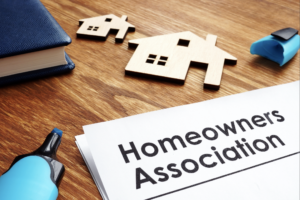
If your answer is yes, then prepare yourself for an increase in your 2023 monthly dues. Record snowfall didn’t just break the MOA budget but your HOA budget as well. According to Natalie Smyre, HOA manager at Berkshire Hathaway HomeServices Alaska Realty, budget season for HOAs began during the record snowfall in December and since then associations have been struggling to figure out how to pay for all the additional snow removal without tapping into required reserve amounts.
As an example, one condo association responsible for the removal of heavy snow on the roof has to deal with the complicated situation of who is responsible for the interior damage of the unit when the roof leaks. This is a complicated situation as a result of the heavy snow fall. A condo association which is responsible for the roof as a common element will not likely pay for the interior damage as a result of ice damming creating leaks in the interior of the unit. Private streets are a common element in many condo associations although they are built to MOA standards. Most associations have set aside snow storage areas and on a typical year they fill up and only require hauling once or twice a year. This year associations have had to haul multiple times and finding nearby snow dumps has been difficult and expensive. Dump trucks charge by the hour and not the load and often have to wait in line to get rid of their load. Using larger dump trucks to Eklutna and sometimes farther locations is sometimes cheaper. As Smyre will tell you, it is the property manager’s responsibility to find the most cost effective way to remove the excess snow.
Landscape and summer maintenance contracts have seen an increase due to the damage caused by the snow, freezing rain and subzero temperatures. Landscaping materials have seen a significant increase and laborers for lawn and landscaping care are in short supply. All of these increases will ultimately affect the annual budget which is prepared by the property manager after much due diligence, research and approved by the board of directors. In 2022 AWWU which supplies water and sewer to all condo associations is also having significant rate increases. One association has had as many six rate adjustments in 2022. Basically, all these adjustments make it difficult to determine what their actual expenses will be in 2023.
And then there is inflation. And the need for the HOA to adjust their replacement costs for the capital items they are responsible for such as roofs, siding, driveways and private water and sewer lines. Just because AWWU provides water and sewer doesn’t mean that they are also responsible for your main and extensions. There are also costs that are not visible to a current or potential homeowner. Property and general liability insurance rates have been increasing for inflation at about 4% per year. Luckily, most HOA policies do have the inflation guard built in. And lets not forget the trash service which has increased some but not significantly.
But it’s all these little increases, even if only a dollar here and there, contribute to a budget increase which must be finally approved by the board. So how can an owner of a single family home in a common interest community or in a condo association protect their equity investment in a home? Attend and participate in your HOA meetings. That’s the best way to understand what is going on in your association. Hire competent property managers with experience. This is not the time for self management because every item in the budget needs to be re-evaluated on an annual basis. Hiring a community member without experience may seem like a good idea to reduce the budget but in the long run, it can create doubt about whether the ten plus items in every budget is being competitively sourced. Self-managed associations can also pit neighbor against neighbor without a neutral third party to interpret the rules and intervene and act as an unofficial mediator to resolve disputes. There are associations that have received a negative reputation in the market due to public disputes and disagreements between members.
Finally, despite the additional costs, there is a need for financial soundness in an association which means adequate reserves and a budget that covers expenses. Every two years an HOA has to be recertified by Alaska Housing Finance Corporation and FHA. If they don’t meet the financial guidelines for adequate reserves and annual budget they can lose their long term mortgage qualifications. In some cases, AHFC will allow them to put together a plan for recovery and lend them adequate funds for reserves and repairs.
There are over 68,000 Alaskans who are part of an Homeowners Association. Eighty nine percent of residents rate their community association experience as positive or neutral. This is a significant portion of our residential market. It is important to maintain value and stability for those homeowners which for many is their first step into home ownership.

 Connie Yoshimura is the Owner and Broker of Berkshire Hathaway HomeServices Alaska Realty. With over 40 years of residential real estate experience, she continues to be a leader in Alaska’s housing market. Most recently, she sold the highest-priced home ever recorded in the Alaska MLS.
Connie Yoshimura is the Owner and Broker of Berkshire Hathaway HomeServices Alaska Realty. With over 40 years of residential real estate experience, she continues to be a leader in Alaska’s housing market. Most recently, she sold the highest-priced home ever recorded in the Alaska MLS.
Leave a Reply